1.
Some years ago, after a reading in Ireland, a major British poet wrote about me in a disparaging way on his own blog. He accused me of playing the ‘race card’. I had read from a sequence of poems called ‘In This Country’. The poems explore a range of feelings a black Caribbean body might feel living in the UK for the first time – the unfamiliarity of the cold; the profound familiarity of spaces such as Brixton or Moss Side; the harsh acceptance that for all the loneliness of Britain it might indeed be a better space than the one that was left behind; the subtle and unsubtle experiences of racism. It was this last category that upset the major poet. To put it crudely, he thought I was being an ungrateful immigrant. Perhaps he dismissed me as yet another black poet who had gone on stage not to perform poetry but to perform identity – the problematic kind of poem that shouts, HEY! I’M BLACK! YOU MUST APPLAUD ME FOR MY BLACKNESS! IF YOU DON’T, THEN YOU’RE RACIST!
The black poet who writes about his or her own daily experiences – some of them negative – faces this constant risk, of being nervously applauded but silently dismissed. This is part of the anxiety of being a black poet in Britain. Yeah yeah yeah – the black poet imagines the audience saying — we’ve heard this song and dance already. Boohoo! Grow up! Get over yourself! The anxiety is sometimes a quite useful one, for every poem has its world and its history of clichés that must be recognized, avoided, and then made new.
If I am to be kind to this major poet (and in subsequent meetings, he has always been kind to me), I would say that sitting in the audience, hearing and not actually reading the poems, I can understand why some of the complexities might have been lost to him – why he might not have appreciated that the poems were not all singing the same note. And indeed I am grateful that he was willing to offer a public critique that many others might have thought but would have been too polite to express.
This having happened in my first few months living in Britain, was a disciplining kind of thing. For it said to me (again, to put it crudely), Kei – you’re black. But do not act black.
2.
This isn’t going to be a coherent blog-essay. I am jumping from story to story. This now is another night, years later, and a night that has nothing to do with poetry. I am walking down the road with a Scottish friend. Unknown to me, my friend, a classically trained musician of sorts, is listening with increasing annoyance as I hum a song to myself. Finally when he can take it no more, he snaps. ‘Kei, could you please stop blacking it up!!’
That was over a year ago, but I keep on returning to the moment. I keep on turning it over in my head – this suggestion – this reminder that my blackness, in certain contexts, is an offensive and inappropriate thing, a thing that ought to be managed and kept at bay. I try not do the thing a writer might do – to make out of this a larger symbol. But then again, it is hard to make that moment larger than it was. By itself, it was a pretty big thing. The argument that ensued was seething and passionate. The end of a friendship that came in its wake was painful.
In the moment I did not respond immediately. Instead I looked away and bit my lips. I imagined my lips as big and caricatured. I imagined my face as the kind that might advertise a coon or a minstrel show.
And then I focused on irrelevant things like the smell of the night, like the cars passing by and the brightness of their headlights. I focused on the simple things like trying not to cry. It is strange to me that now, a year later, I cannot remember the smell of that night though it seemed so desperately important then.
It suddenly occurred to me that the offensive comment probably wasn’t meant to be offensive. Maybe this was just politically incorrect humour of which I have always been a fan.
No. It turns out my friend had indeed spoken from his heart. He did not find his position at all ridiculous. His was a genuine annoyance. He had firm opinions about music – opinions he felt he had earned through years of study and practice. Whatever it was I had been doing to the song, whatever inflections I had given to its melody, however it was that my blackness had crept into it – it upset something very deep inside him.
I was calm. It was only after that it occurred to me that I could have shouted or I could have stormed off or I could smacked him in the head and all of these would have been perfectly reasonable responses. The restraint I practiced was perhaps another way in which black bodies are always trying to discipline themselves, to make themselves acceptable even in the face of racism. I tried to explain, carefully and rationally, why his comment was hurtful to me personally and to black communities and artists generally – why it was built on certain cultural ideas of what a CLEAN note, or a PURE note ought to sound like, and by extension, how one might distort, dirty or spoil such a note. In it is the notion of what is NORMAL and how that thing can be made ABNORMAL.
In Black American music culture there is this idea of the line – perhaps not just the line of music but the cultural and racial lines that we must fall in, or the lines that we must toe. To ad lib, to warble, and to give certain Jazz or Gospel inflections to this line is to “worry the line”. Professor Cheryl Wall remobilizes this concept as way to understand black poetics. The act of writing black poetry is an act of worrying the line. It is a dangerous thing to do. Almost always, it creates anxiety.
3
Black academics, black artists, black poets — often have to come to terms with this dilemna – that our success in life, our acceptance by the academies we work in, is often directly proportional to the extent to which we appear to be unlikely products of the cultures that did in fact produce us.
Here is yet another true story: in Manchester, I give a reading. To me, it feels like a successful reading. The audience seems to agree. An older gentleman comes up to the table after to have his book signed. He shakes his head smiling as he looks at me. ‘What was it like,’ he asks – his face is kind and gentle, ‘to have a talent like yours and to grow up in a place like Jamaica?’ And this despite the examples of Lorna Goodison or Dennis Scott, or other regional writers like Kamau Brathwaite, VS Naipaul or Derek Walcott.
To this man, I am an unlikely product.
I am an unlikely product of the Caribbean.
In New Zealand just a couple months ago I give some readings and some interviews on stage. They go well. A day after it all I am walking through the streets of Wellington and a man stumbles up to me. He grabs my hand and shakes it. His face is also kind and gentle. He says to me, ‘I just loved listening to you! And it’s so amazing – the shocking disparity between your eloquence and your physical appearance.’
To this man, I am an unlikely product.
I am an unlikely product of black skin and dreadlocks.
4
It seems the act of writing certain black experiences has to be one of translation – as surely as we translate from one language into another. Blackness itself is still seen to exist in a place outside of language, or at least outside the refined language of poetry. Blackness supposedly exists in a place of the overly visceral – in a place of grunts and ecstasy. We are required to translate blackness – to make it palatable. But, of course, so many of my experiences are not palatable.
And I do not know whether the old dictum about the economy of translation is true – whether or not something is always lost. Things are not so simple. There are gains and there are losses. And there are other processes that have nothing to do with gain or loss. The metaphor is insufficient. But this much seems to be important, that we keep blackness in check.
It’s just that sometimes we probably forget ourselves. Sometimes the blackness intrudes – just like that, when you don’t even know it has. Like it might happen one night when you are walking down a street and you begin to hum to yourself. And of course we are ourselves to ourselves. We might forget that someone else is looking on, listening – and that to their eyes or ears we might have suddenly become too black.
In this way, the anxieties of being a black poet in Britain are obviously part and parcel of the broader anxieties of being black in Britain.


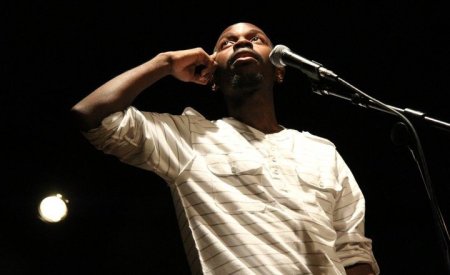
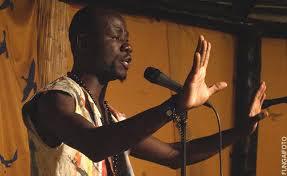
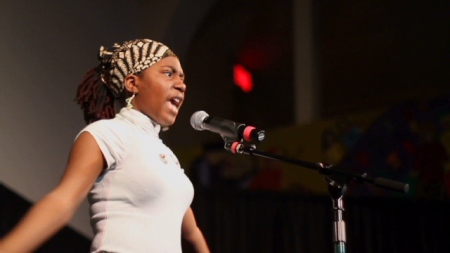
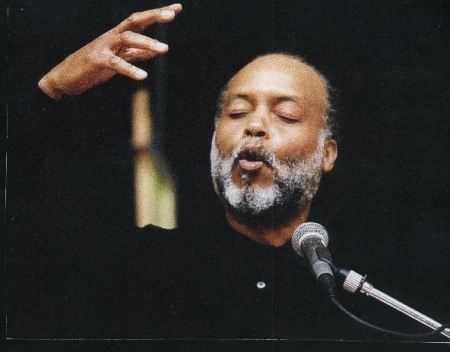
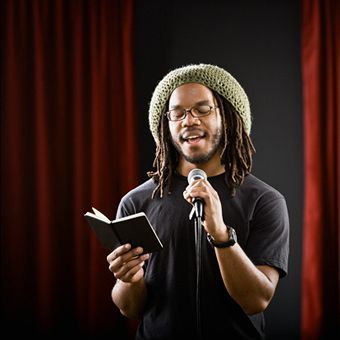
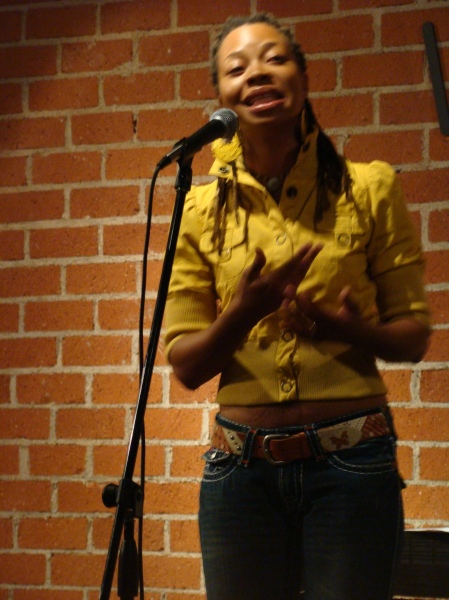
Reblogged this on Angela Topping and commented:
Kei Miller’s blog is always interesting. I especially love the bit about ‘worrying the line’, although there is much here that breaks my heart.
Thanks for the reblog, Angela. And yes — I’ve always loved that idea about worrying the line. I want to use it in a larger project one day, but haven’t found it yet. 🙂
Reblogged this on Poplar Culture and commented:
After listening to Kei Miller read from “The Cartographer…” when I was in Cornwall a few weeks ago, it feels good to find his blog here. If you don’t know his work already, why not look for him on Youtube, he’s quite unique, and if you do, his latest WordPress post is a fine place to begin expanding on what he writes.
Thanks Poplar!
No no, thank YOU. We spoke briefly in Cornwall — I wore a spirally thing. Would have liked to attend your workshop. You’re reading was both topographic and numinous.
Isn’t this what makes it so risky to be honest and reveal yourself ? Whatever and whoever it seems to me it’s hard to win in this writing/exposure business. People are surprised too to find what they see as an elderly, fat woman struggling to search out and express ideas – why don’t we just shut up and sit by the fire and knit?? You are a great ambassador – not just for Jamaica – although The Cartographer gives an insight and understanding about the people and history that make the place come so real and alive – but also because of your academic self sitting within the dreadlocks – Rasta man surprising the cartographer? Thanks for your wonderful poetry and for our lovely self too.
You’re way too kind! Nice to see you in this space. But it’s true what you say about the dangers of revealing any kind of self – not only racialized selves. We all risk being accused of being self-indulgent. As I say though, it’s not that I don’t find that anxiety strangely useful at times, even if part of me resents it.
Well, Key, last year you read in Bucharest and I don’t think you felt this kind of reactions. Racism works in perverted ways. In Romania someone that is black can be seen as different, interesting and exotic exactly because of the color of the skin. Then again, the racist subtext here expresses against someone that might be “Gipsy”. The racist mind frame is none the less the same everywhere: what someone has to say, what someone has to show is perceived in terms of appearance.
Maybe the subtext is rather connected to identity and the way it shifts in terms of both superiority and inferiority complexes. It comes to one’s mind Mahatma Ghandi’s youth in South Africa. Now he is a symbol of freedom and equality, but he was known for racist arguments expressing contempt about native population. He used to argue that as a British subject he cannot be in the same prison with Africans that are “troublesome, very dirty and live like animals”. I’ve heard the same thing being said about Romanians. You should see how careful is a Romanian racist in this case to point out that Romanian is not Rromani (or plain “Gipsy”) failing to note that race cannot be anything else than appearance.
Of course it is sad to discover prejudice anytime, but then, it is also a chance to subvert it both assuming the role of your own cultural identity and proving wrong the presumptions that any culture or color could ever identify with violence, poverty or hate. As a poet, we also may have (more than most of our fellows- this may sound as a mark of superiority discourse, but it is only a deamn vector point function) the chance to reformulate the terms that are involved in the perception of our identity.
Souls of Black Folk–21st century notwithstanding, I could cry.
Reblogged this on glasgowmango and commented:
An interesting post from Poet Kei Miller….
Pingback: Being A Black West Indian in Britain · Global Voices
I tweeted thus:
@keimiller is as sharp and trenchant a commentator as Ta-nehisi Coates, and a better writer.
I know no higher praise.
You’re too kind, Peter! Thank you boss. 🙂
Pingback: Being A Black West Indian in Britain | Freedom, Justice, Equality News
Pingback: Kei Miller – The Cartographer Tries to Map a Way to Zion | Dave Poems.
Kei, I have a good friend,the black poet Roy McFarlane, a wonderful chap.. Roy asked me to edit some of his poems and I ran up against the difficulty of not wanting to lose, if you like, the distinctive quality of his way of expressing himself. From the ‘opposite side of the garden fence’ I really appreciate what you’re saying in this essay.
May I finish by saying I bought your ‘Writing down the Vision’ at Ledbury, and think it is absolutely excellent. Thank you for that pleasure..